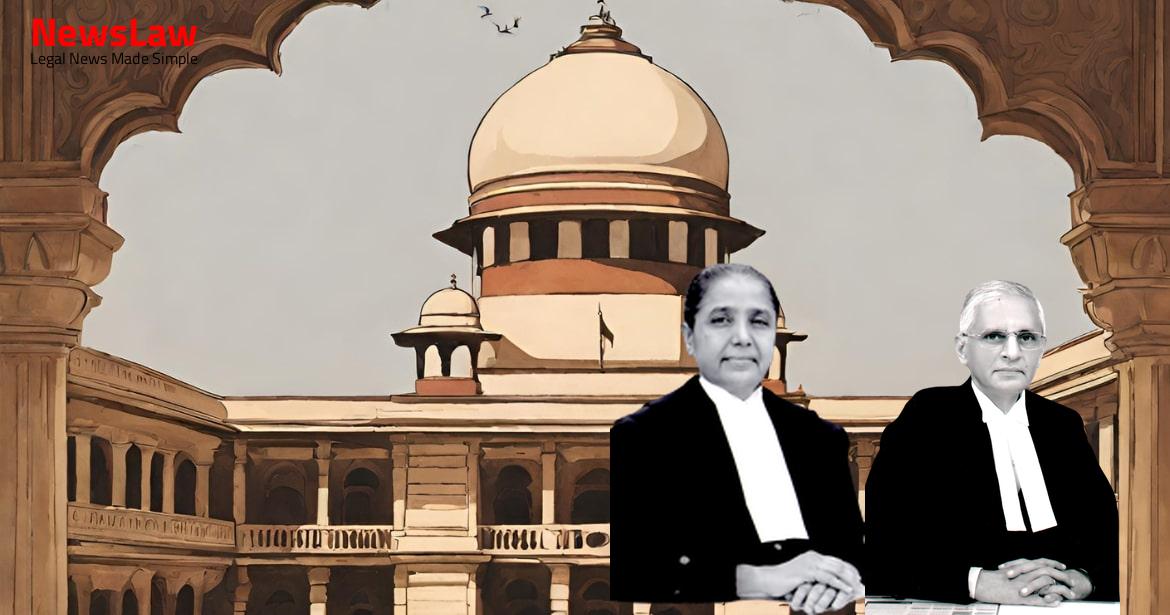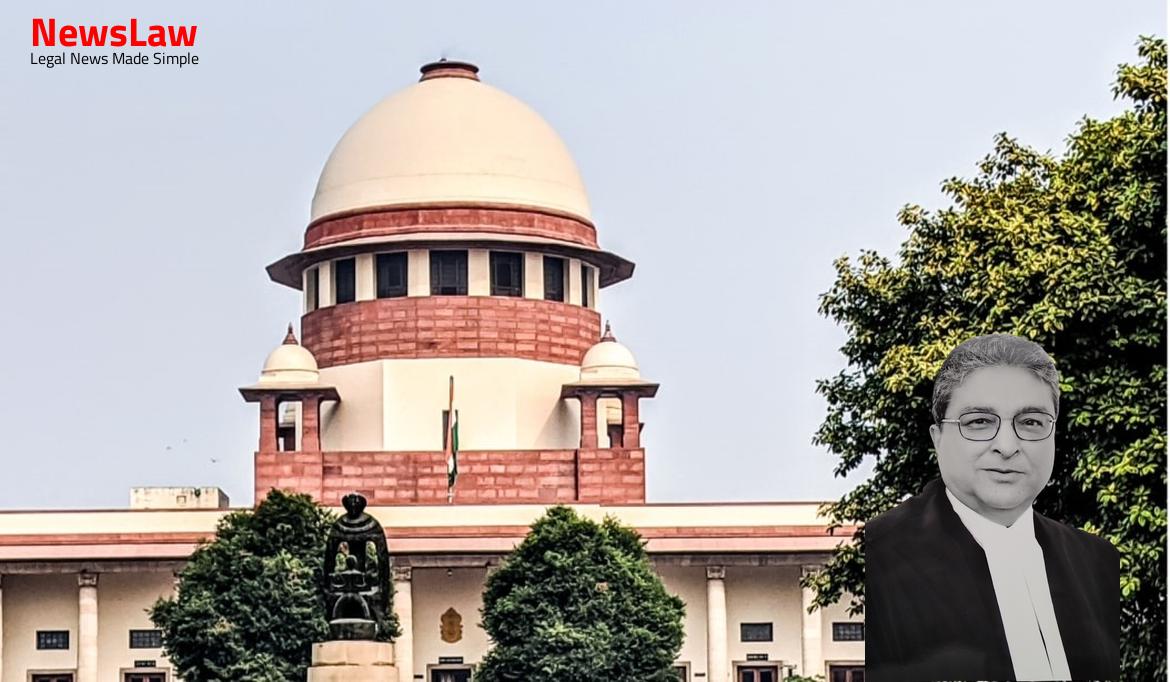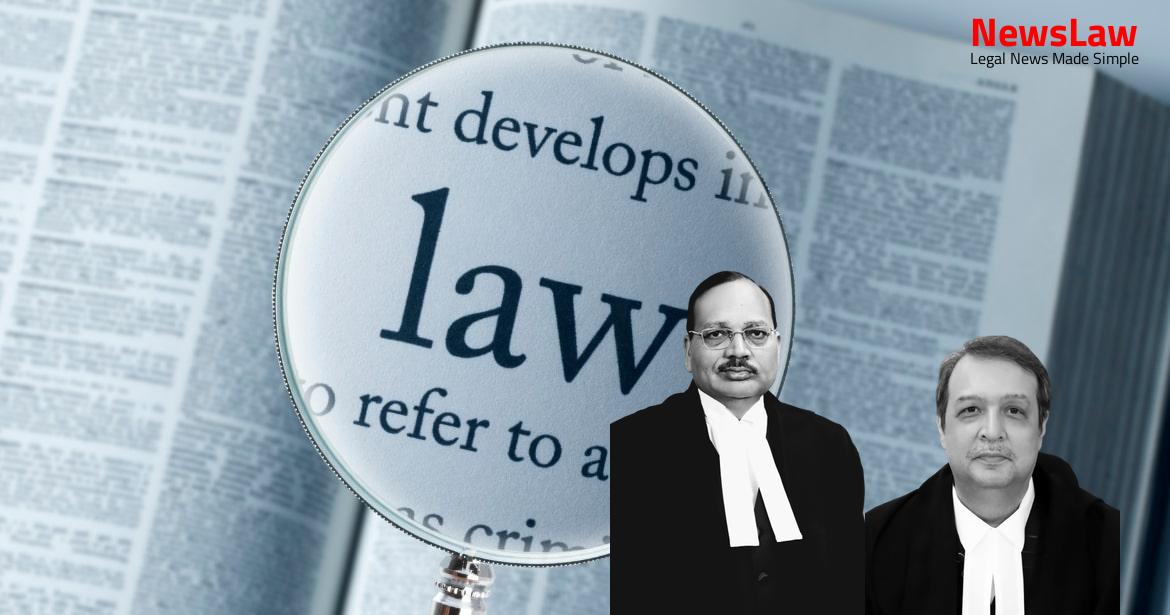In a significant development, the Supreme Court of India has upheld the judgment of the High Court in The State v. Accused Name. The accused was convicted for the offence punishable under Section 326 I.P.C for the attack on the deceased. Both the High Court and Sessions Court found the accused guilty, leading to the imposition of a compensation. Let’s delve into the details of this crucial legal case where justice was served.
Facts
- The High Court upheld the judgment of Sessions Case No.20 of 2002 dated 22.02.2005
- A compensation of Rs.20,000/- was imposed by the High Court
- The appellant was convicted for the offence punishable under Section 326 I.P.C by both the High Court and Sessions Court
- The High Court considered the appellant’s five years of actual imprisonment and deemed it as sufficient while deciding on the quantum of sentence
- An FIR was registered on 26.01.2002 regarding an attack on the deceased-Harbans Singh by the accused at a tube well outside the village.
- The accused allegedly came with weapons and attacked the deceased while he was with his brother.
- The proceedings were initiated against the appellant and other accused who appeared before the court for trial.
- The prosecution has presented evidence in the ongoing proceedings.
Also Read: Solapur Municipal Corporation vs. Majarewadi Gram Panchayat Employees
Arguments
- The appellant’s counsel has contended that the appellant was not named in the FIR, therefore the conviction is not justified.
- However, further statements reveal that the appellant was named for possessing a kirpan and assaulting the deceased.
- The charge sheet filed included the appellant after investigation.
- The evidence provided by the complainant (Jagir Singh – PW-3) specifically names the appellant as well.
Analysis
- The appellant has been convicted under Section 326 I.P.C. while the other accused have been convicted under Section 302 I.P.C.
- The presence of the appellant, possession of kirpan, and overt act were established through the evidence of injured eye-witnesses.
- Both the Trial Court and the High Court considered the evidence and arrived at their conclusions.
- The appellant-accused was named by injured eye-witnesses who testified to his possession of a kirpan and his overt act.
- The Trial Court’s conclusion on the charge against the appellant was based on this evidence, leading to his conviction and sentence.
Also Read: Jagdishchandra v. Joint Charity Commissioner & Ors.
Case Title: SAHIB SINGH Vs. THE STATE OF PUNJAB
Case Number: Crl.A. No.-000556-000556 / 2009



